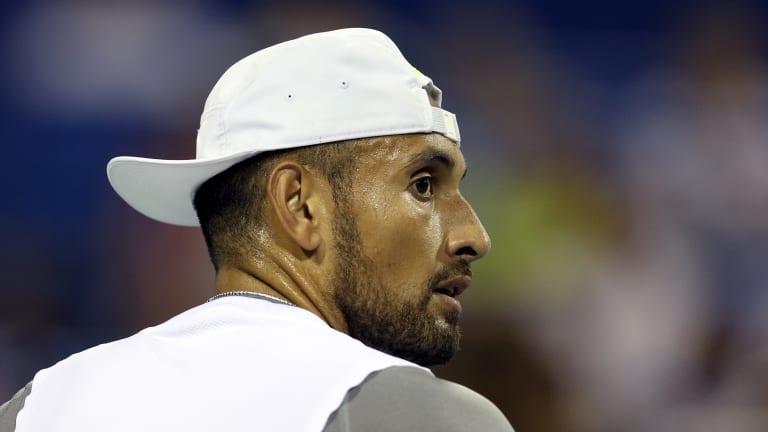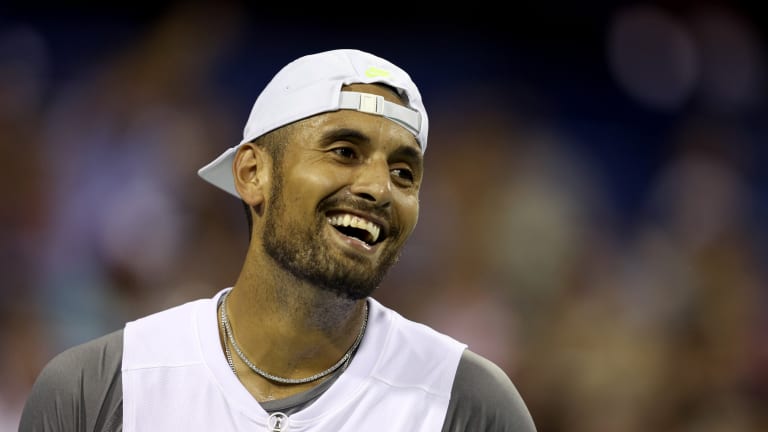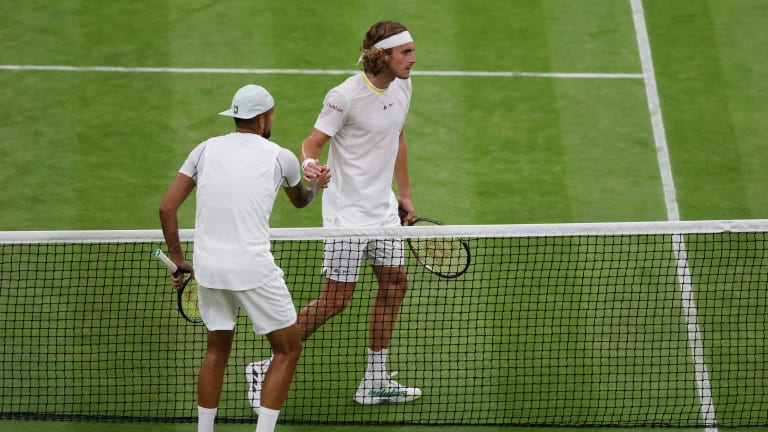The Summer of Nick
The Volley: Is it renaissance or redemption for Kyrgios in North America?
By Aug 04, 2022The Summer of Nick
Measuring the Kyrgios Effect: Nick's breakthrough stretch notwithstanding, it's still caveat emptor
By Sep 14, 2022The Summer of Nick
Nick's pick to win the US Open: Carlos Alcaraz
Aug 22, 2022The Summer of Nick
"A lot of things are clicking": Taylor Fritz moves swiftly past Nick Kyrgios in Cincinnati
By Aug 18, 2022The Summer of Nick
Now that Nick Kyrgios is winning, what can the rest of us learn—and not learn—from his sui generis playing style?
By Aug 10, 2022The Summer of Nick
In Atlanta field packed with home favorites, Nick Kyrgios remains the main event
By Jul 29, 2022Lifestyle
Serena Williams refuses to rule out tennis comeback in 'TODAY' interview
By Jan 30, 2026Australian Open
"This is bulls---": Alexander Zverev fumes about, then accepts, Carlos Alcaraz cramp drama at Australian Open
By Jan 30, 2026Australian Open
Jannik Sinner had Novak Djokovic's number, so the legend "had to change it" ahead of AO classic
By Jan 30, 2026Australian Open
Aryna Sabalenka or Elena Rybakina? Australian Open women’s final preview
By Jan 30, 2026The Volley: Is it renaissance or redemption for Kyrgios in North America?
The Aussie has carried his Wimbledon momentum into the US Open series, begging the question if he keep the good vibes going in the wake of persistent demons.
Published Aug 04, 2022
Advertising

Some love him, some hate him. And that's not likely to change no matter how well Nick Kyrgios plays.
© Getty Images
Advertising
Advertising

Beyond a lone “Tommy!” call from the rafters, the Washington D.C. crowd was firmly behind the enigmatic Aussie during his straight-sets win against American Tommy Paul.
© Getty Images
Advertising
Advertising

A drive-by handshake between Kyrgios and Tsitsipas, after their contentious Wimbledon clash.
© Getty Images